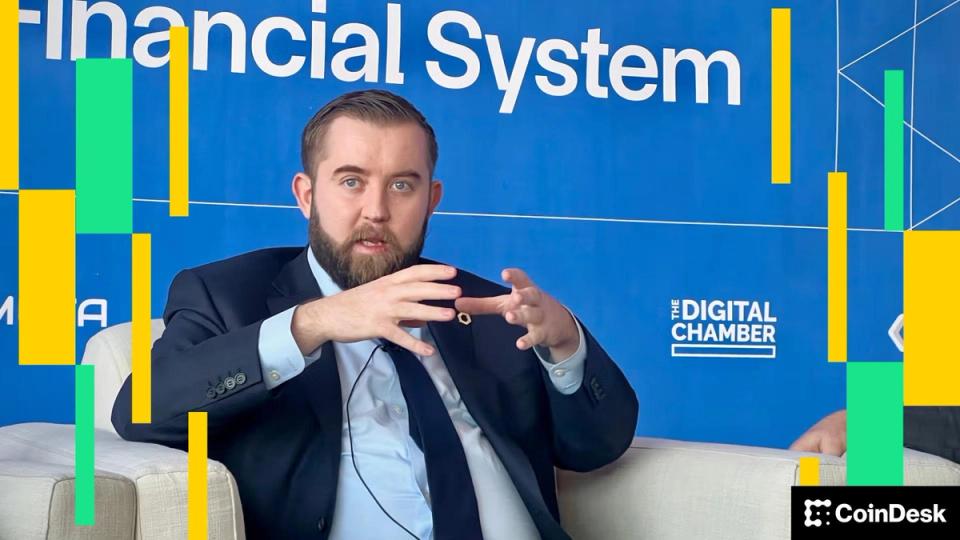Cryptocurrency has become one of the hottest topics in the world, and there is no exception for Canada. People do direct trading in multiple crypto exchanges in canada by following the rules and regulations formed by the Government in terms of certain clauses. But there are certain questions that often come to mind like what are the crypto regulations, is it legal, who regularly checks these trades, etc.
In this article we will learn about some of the essential rules and regulations for the Canadian people in terms of cryptocurrency.
Is Cryptocurrency Legal in Canada?
Yes, cryptocurrency is legal in Canada. In 2014, Canada was the first country to focus on setting up the official guidelines related to crypto trading brokers to have more security and with the motive of preserving consumer rights. The Canadian government recognizes digital currencies as legal tender, which means you can freely buy, sell and trade cryptocurrencies without breaking any laws.
However, these laws usually come with certain restrictions and regulations to maintain the integrity and security of the data. It also ensures safety and fairness in the market.
Who are the regulators that regulate cryptocurrencies in Canada?
For the purpose of providing a more detailed legal framework for cryptocurrency assets, including multiple frameworks related to stablecoins – the Canadian Securities Administrators (CSA) has published a number of staff notices. To avoid breaking any rule, it is important that all the traders and investors understand the new regulatory framework.
CSA plays a significant role across several provincial securities commissions. One of their main tasks is to make sure that securities rules are consistent across Canada. Under this large umbrella there are several groups such as Quebec’s Autorité des marchés financiers (AMF) and the Ontario Securities Commission (OSC). These, along with other regulators, generally follow the CSA’s guidelines and rules when it comes to crypto-assets.
Some of the major cryptocurrency regulators in Canada are:
Financial Transactions and Reports Analysis Center of Canada (FINTRAC)
FINTRAC is responsible for managing the matters related to money laundering and terrorist financing. They require crypto businesses to register with them and comply with anti-money laundering (AML) rules and counter-terrorist financing (CTF) regulations.
Canadian Securities Administrators (CSA)
CSA is an umbrella organization made up of securities regulators from across Canada. They regulate securities markets, including certain fixed cryptocurrencies and crypto investment products, to ensure protection and market integrity.
Office of Superintendent of Financial Institutions (OSFI)
OSFI regulates and supervises federally regulated financial institutions, such as banks and insurance companies, to ensure stability and safety. They do not directly regulate cryptocurrencies, they may have indirect oversight through their oversight of financial institutions involved in crypto-related activities.
How are cryptocurrencies regulated in Canada?
There are several strategies to follow for regulating cryptocurrencies in Canada, but all of them mainly revolve around AML/CTF laws, consumer protection, security and market integrity.
Let’s understand the complete pattern how it actually works:
Anti-Money Laundering and Counter-Terrorism Financing (AML/CTF) Laws.
Everyone crypto exchanges and digital currency businesses must register with FINTRAC and must comply with AML / CTF laws. These laws include customer identification, transaction monitoring and the reporting of suspicious activity. They provide an instant update on breaking the flow and preventing the customer’s data from any form of hacking, spam etc.
Consumer protection
CSA looks into all the matters related to consumer protection in the crypto space, to ensure that investors are prominently informed about all the scams, and also protected from such scams or fraudulent activities. They have the right to directly interfere with any crypto businesses if they identify misleading or fraudulent behavior that could cause harm to the customers.
Market Integrity
CSA also monitors the integrity of the crypto market and addresses some of the core issues such as market manipulation, insider trading and conflicts of interest. All these matters are handled directly by them and they enforce rules to promote fair and transparent trading by maintaining the investor’s confidence.
Regulation of Crypto Exchanges in Canada
Crypto exchanges, platforms where users can easily buy, sell and trade cryptocurrencies, are subject to regulations in Canada to ensure consumer protection and market integrity. To work legally, they must:
Register with FINTRAC and comply with all AML/CTF regulations.
Also comply with security regulations if they offer digital security assets such as crypto products
Implement all the robust and strong security measures to protect users’ funds and personal information.
Provide clear and transparent information to the users about their platform fees, risks and other trading policies.
Regulation of Crypto Mining in Canada
With the help of Crypto mining software and machines is called the process of validating transactions and securing blockchain networks, and is generally not heavily regulated in Canada. However, miners may need to consider:
Environmental Regulations: Mining operations require a significant amount of energy for the operations, so miners must comply with all environmental laws and obtain the necessary permits, especially in provinces with strict environmental policies.
Electricity Regulations: Some states may have regulations or policies related to cryptocurrency mining activities, such as electricity consumption or pricing.
In 2022, both Manitoba and British Columbia decided to suspend new crypto mining operations connecting to their hydroelectric power grids due to environmental concerns. Then, in January 2023, Hydro Quebec asked for a temporary halt in the allocation of power for crypto mining. Quebec’s energy board agreed to this pause while they reviewed how much energy should be allocated for such projects.
Now, any new crypto mining project in Quebec that uses at least 50 kilowatts (kW) of power for blockchain activities must pay 16.603 cents per kilowatt hour (kWh) according to the Rate CB. This ensures that large crypto mining operations are both regulated and fairly priced in terms of their energy consumption.
Other Crypto Regulations in Canada
According to other conditions, Canada may have regulations or guidelines for other aspects of the crypto ecosystem, such as:
Decentralized Finance (DeFi): While DeFi protocols operate in a decentralized manner, they may still be subject to regulatory scrutiny, particularly in relation to AML/CTF compliance and investor protection.
Purse Regulations: Cryptocurrency wallets are not directly regulated, but all wallet providers must comply with AML/CTF laws if they offer services such as exchange or custodial storage.
Border restrictions and official statement
There are no special rules for bringing cryptocurrencies across Canadian borders. However, if you are carrying Canadian $10,000 or more in cash or other monetary forms when you enter or leave Canada, you must declare it. For your personal crypto, you must fill in the form E677 – Cross-border currency or monetary instruments report – individually.
If you are transporting money for anyone else, you must use form E667 – Cross-Border Currency or Monetary Instrument Report – General. Also, don’t forget that Canadian tax reporting requirements may also apply to these funds.
What are the requirements to be a money services business (MSB)?
According to cryptocurrency regulations in Canada, all crypto companies fall under this category of Money Services Business (MSB). Additionally, they fall under the category of “Proceeds of Crime and Terrorism Financing Act (PCTFA).” All the companies or firms that deal directly with the virtual currency exchanges must first be registered with FINTRAC.
As an MSB, there will be certain requirements that you will have to meet, such as formatting a compliance program in accordance with all the financial regulations currently operating in Canada, data for all the transactions, reporting for multiple reports and client identifications . Even if any kind of suspicious activity, transactions, terrorist funding or other issues happened, you will report directly to the FINTRAC.
Closure
Understanding the new cryptocurrency regulations and amendments made by the government of Canada can be a bit complicated but provides great security and safer environment for all the investors and traders. For all the regulatory bodies it is necessary to comply with all the regulations in terms of maintaining funding status. It becomes mandatory for both businesses and individual investors. For all the country’s governments, their people are of utmost importance and their security is at a peak either in transactions of digital currencies. These laws and regulations protect their data, transactions, accounts, wallets, etc.
Recent articles
Disclaimer for Uncirculars, with a Touch of Personality:
While we love diving into the exciting world of crypto here at Uncirculars, remember that this post, and all our content, is purely for your information and exploration. Think of it as your crypto compass, pointing you in the right direction to do your own research and make informed decisions.
No legal, tax, investment, or financial advice should be inferred from these pixels. We’re not fortune tellers or stockbrokers, just passionate crypto enthusiasts sharing our knowledge.
And just like that rollercoaster ride in your favorite DeFi protocol, past performance isn’t a guarantee of future thrills. The value of crypto assets can be as unpredictable as a moon landing, so buckle up and do your due diligence before taking the plunge.
Ultimately, any crypto adventure you embark on is yours alone. We’re just happy to be your crypto companion, cheering you on from the sidelines (and maybe sharing some snacks along the way). So research, explore, and remember, with a little knowledge and a lot of curiosity, you can navigate the crypto cosmos like a pro!
UnCirculars – Cutting through the noise, delivering unbiased crypto news







